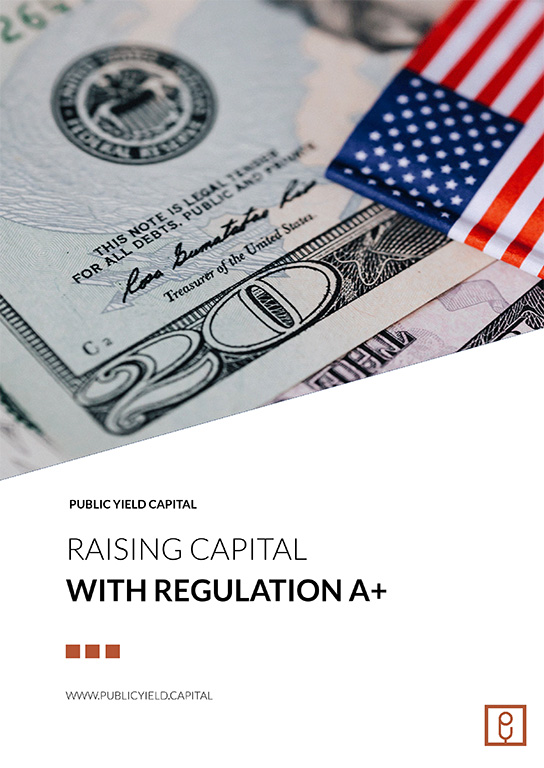
As a company embarking on a fundraising round, it’s crucial to navigate the regulatory landscape and stay compliant with the Securities and Exchange Commission (SEC) regulations. Failure to do so can result in severe consequences, including legal and financial implications. In this blog post, we will explore essential strategies and best practices to help you stay compliant with SEC regulations during your fundraising round. From conducting proper due diligence to transparent investor communications, these guidelines will assist you in mitigating risks and maintaining regulatory compliance. Whether you’re engaging in Regulation A+ offerings or equity crowdfunding campaigns, adhering to SEC regulations is of utmost importance.
Diligence Matters: Conducting Thorough Due Diligence

Before embarking on your fundraising round, it’s crucial to conduct thorough due diligence to ensure compliance with SEC regulations. This section covers two key areas to focus on:
- Company Compliance Check: Ensure your company meets the necessary regulatory requirements and eligibility criteria for the chosen fundraising method. Whether it’s Regulation A+, equity crowdfunding, or other fundraising avenues, carefully review the guidelines set forth by the SEC to confirm that your company qualifies. This includes evaluating factors such as financial statements, legal and governance structures, and any potential conflicts of interest. Conducting a comprehensive internal review helps identify and address any compliance gaps before engaging with investors.
- Investor Eligibility Verification: When raising funds, it’s essential to verify the eligibility of your investors to comply with SEC regulations. Different fundraising methods have specific requirements, such as limitations on the number of non-accredited investors or restrictions on investment amounts. Implement robust verification processes to ensure that investors meet the necessary criteria. This may involve collecting investor documentation, conducting investor questionnaires, or leveraging third-party verification services. By verifying investor eligibility, you can demonstrate your commitment to regulatory compliance and safeguard against potential violations.
By conducting thorough due diligence on both company compliance and investor eligibility, you establish a strong foundation for staying compliant with SEC regulations during your fundraising round.
Building Trust through Transparent Investor Communications

Open and transparent communication with investors is paramount to maintaining SEC compliance and building trust in your fundraising round. Consider the following strategies:
- Clear Offering Documents: Provide comprehensive and accurate offering documents that outline the terms, risks, and disclosures associated with your fundraising round. Ensure that these documents adhere to SEC guidelines and present information in a clear and easily understandable manner. Avoid vague or misleading statements that may raise concerns or violate disclosure requirements. By providing transparent offering documents, you establish trust with investors and demonstrate your commitment to compliance.
- Timely Updates and Disclosures: Keep investors informed of any material changes or developments throughout the fundraising round. This includes timely updates on financial performance, regulatory filings, operational milestones, and other pertinent information. Promptly disclose any material events or risks that may impact the investment decision-making process. Maintaining a consistent stream of communication ensures that investors are well-informed and allows them to make informed investment decisions within the bounds of SEC regulations.
Transparent investor communications not only help you meet SEC compliance requirements but also foster trust, transparency, and credibility with your investor base.
Proactive Compliance: Monitoring and Reporting

Maintaining compliance with SEC regulations requires ongoing monitoring and reporting. Implement the following practices to ensure proactive compliance:
- Internal Compliance Controls: Establish internal controls to monitor and track compliance with SEC regulations. This may involve assigning a compliance officer or team responsible for overseeing compliance activities, conducting periodic audits, and implementing compliance training programs for employees. By proactively monitoring internal compliance, you can identify and address any potential issues before they escalate.
- Regulatory Reporting: Stay vigilant in meeting regulatory reporting obligations as required by the SEC. This includes timely filing of required forms, such as Form D for Regulation A+ offerings or Form C for equity crowdfunding campaigns. Familiarize yourself with the reporting deadlines and requirements specific to your fundraising method and ensure that all necessary information is accurately provided. Non-compliance with reporting obligations can result in penalties and potential legal consequences.
By establishing robust compliance monitoring and reporting mechanisms, you demonstrate your commitment to SEC regulations and mitigate the risk of compliance breaches.

Navigating SEC regulations during your fundraising round is essential for maintaining compliance and building investor confidence. By conducting thorough due diligence, implementing transparent investor communications, and proactively monitoring compliance, you can navigate the regulatory landscape effectively. Adhering to SEC regulations not only safeguards your company from legal and financial risks but also enhances trust and credibility with your investor base. By prioritizing compliance, you position your company for success in equity crowdfunding, Regulation A+ offerings, and other fundraising endeavors.



